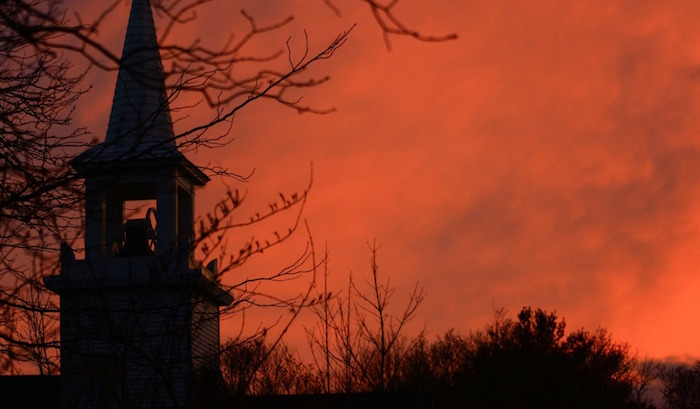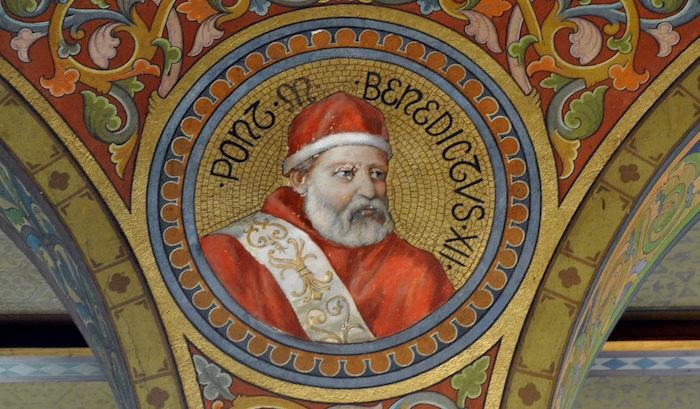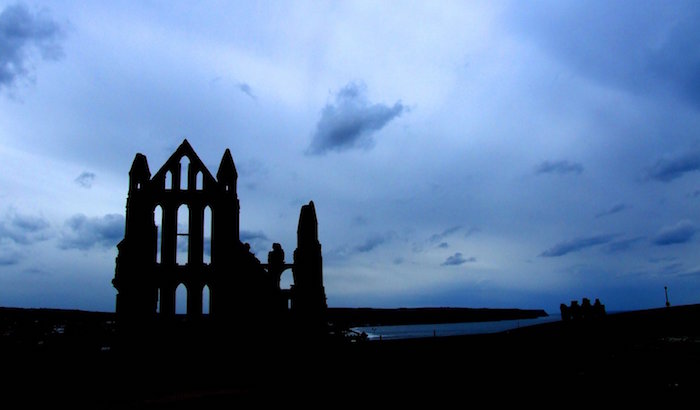This week, we have a remarkable tale from rural France in 1320 about the souls of the dead going on pilgrimage. The source of the story is no less remarkable than the tale itself. Both make great adventure hooks. Let’s dive straight in!
This post is brought to you by beloved Patreon backer Joel Dalenberg. Thanks for helping keep the lights on! If you want to help keep this blog going alongside Joel, head over to the Patreon page – and thank you!

In the Middle Ages, the Languedoc region of southern France was synonymous with the heresy of Catharism. Cathars believed there were two gods: one good, who created souls and heaven, and one evil, who created the world and all that’s in it. Death was a brief stopover in an endless cycle of rebirth in a sinful, suffering world. The only way to escape this world and the evil god was to reject them. Those most likely to succeed were a subset of the Cathars known as the Perfects, who lived an ascetic existence abstaining from marriage, sex, and meat. From 1209-1229, the Catholic Church fought a crusade in Languedoc against the Cathars. For a hundred years after, a Catholic inquisition remained in Languedoc to root out secret Cathars living in the countryside.
In 1317, a man named Jacques Fournier became Bishop of Pamiers, in Languedoc. Fournier, who would later become Pope Benedict XII, worked closely with the Inquisition. He kept meticulous transcripts of the interrogations he sat in on. These transcripts – the Fournier Register – are incredible because they are one of the earliest surviving European records of the voices and thoughts of ordinary people. Because this was a transcript (albeit one translated out of Occitan into Latin), it allows us to hear ordinary peasants describe their lives and beliefs in their own words. Sadly, little of the Register has been translated into English (or if it has, I couldn’t find it), but what is available is amazing.
By the time Fournier was Bishop of Pamiers, Catharism was all but dead. The last Perfect burned in 1320. Some of the peasants Fournier interrogated reported having known a secret Perfect while still children, but that’s about the worst of it. Mostly, the Inquisition was concerned not with quelling actual Catharism but its echoes: lingering folk beliefs and theological oddities. Many people who appeared before Fournier confessed to petty errors like believing the eucharist wasn’t the literal body and blood of Christ or that the world wasn’t created but had always existed and always would. How much of this was a lingering effect of Catharism and how much simply reflected that few peasants received religious instruction? It’s hard to say.
The Inquisition against the Cathars as Fournier records it is very different from what we might imagine. He asks almost all his subjects if they’ve been tortured. All deny it. Many report not even having been arrested; they’re free to come and go as they please. The inquisitors aren’t blind fanatics. They ask reasonable and commonsense questions, paying special attention to whether informants are reporting on their neighbors out of greed or vengeance. Punishments are humane by Medieval standards. In fact, Fournier seems more concerned about perjury than heresy. That said, I’m sure a lot of Fournier’s easygoing style was due to this being a century after the Cathar leaders were put to the sword. I’ll wager the Inquisition was less chill towards the beginning.

The subject of our post today is a peasant interrogated by Fournier: Arnaud Gélis, also called Arnaud the Drunkard. Arnaud claimed he saw dead people! He traveled from church to church on a pilgrimage, and his fellow pilgrims were the souls of the dead! While traveling with them, Arnaud was able to observe them and converse with them.
The dead looked just like the living, having hands, feet, eyes, and flesh. They traveled only by night, and only along roads and deserted places. As they went, they held each others’ hands to keep their spirits up. Some walked quickly and some slowly. Sometimes, they fell down and others trod upon them, apparently without effect. Some nights, the dead would stop in beautiful private homes and drink the good wines they found inside. Arnaud called the dead the Good Ladies, though there were both men and women among them.
The dead went on pilgrimage for the same reason as many living people: as penance. They traveled from church to church to wash away the sins they committed in life. Once they had done enough penance, they passed into Repose, where they would await the Day of Judgement. This idea is connected with (but contradicts) the Catholic idea of purgatory, a place where mild to moderate sinners go to undergo purification before they pass into heaven. In an odd coincidence, as Pope, Jacques Fournier (or Benedict XII) would express skepticism of purgatory’s existence.
Arnaud the Drunkard also got the chance to tell Bishop Fournier that everyone would go to heaven. Arnaud learned this from a dead friend of his, Hugues du Durfort, who told him that on the Day of Judgement, Holy Mary would intercede with the Lord for the souls of all Christians. Because of her prayers, God would spare them. She would do the same for the souls of the Jews, as she was a Jew herself. No word on what would happen to Saracens, pagans, and those of other religions known to Christendom.
Fournier encountered the idea of universal salvation elsewhere in his interrogations and seemed to take particular offense to it. Why would God create Hell if he wasn’t going to put anyone there? Nonetheless, it’s interesting to see that some lay Christians have been predicting universal salvation literally as far back as we have records.
Fournier did not explicitly record the punishment ordered for Arnaud the Drunkard. Judging by the cases this one’s recorded alongside, he probably had to wear a yellow cross stitched into his clothes to show he was a repentant heretic. Also, delightfully ironically, Arnaud probably had to conduct a few pilgrimages to major shrines. Pilgrimages with the dead got him into this mess, but pilgrimages with the living might get him out!

We can draw two good adventure hooks from this. The first is from the Fournier Register itself, which records a humane, sensible inquisition, inasmuch as such a thing is possible. If it’s reasonable for such an inquisition to be present in your fictional campaign setting, the PCs might be asked to step in and take Fournier’s place when he’s sick one day. Many of the folks appearing before the commission were falsely reported by neighbors trying to take their land or to get revenge for some petty wrong. Others have legitimately erred, but – like Arnaud the Drunkard – their error is small, correctable, and forgivable. But if you insert one or two dangerous subversives – people who genuinely mean harm to their neighbors – among those accused, can the PCs sniff them out?
The other adventure hook is the crowd of dead pilgrims. Arnaud’s informant, Hugues du Durfort, shows us that the dead can have special knowledge. If your PCs need some critical information from a dead person, maybe they can meet them on a pilgrimage. First, you have to figure out why Arnaud can see the dead. Then you’ll need to replicate it. His name (‘the Drunkard’) provides a good red herring, but drunken escapades aren’t thematically consistent with the rest of the adventure hook, so maybe his power comes from a particular contaminant in his drink? One thing’s for sure – when you find your dead source and get the information out of them, all the pilgrims will vanish, leaving you alone in someone’s beautiful private home, drinking their fine wine, just before they get home and call the cops!






